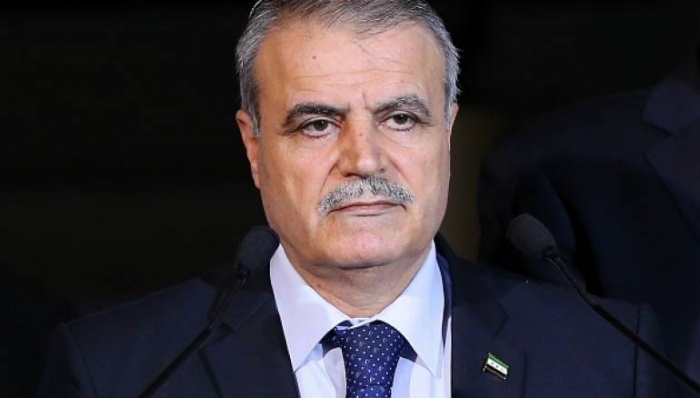Asaad al-Zoubi, senior opposition figure and head of the negotiations delegation for the Syrian opposition in Geneva, announced his will to be relieved of his post following the resignation of chief negotiator Mohammed Alloush, in light of new opposition figures entering the negotiations and the Assad regime's time-wasting agenda.
The top dissident said he is not convinced in his role, but that he is still searching for light at the end of the tunnel in the negotiations with the evasive Assad regime.
Speaking to Zaman al-Wasl, Zoubi said he had given up on political solutions, explaining: "A political solution stems from the reality," adding, "We want a political solution, but we [must] look at the reality in the field. The Russians fight the Syrian population daily and the [Assad] regime says in its loudest voice it does not want a political solution. Hence, there are variables on the ground leading us to the impossibility of reaching a political solution with the regime. For Iran, Russia, and the regime, the Syrian people are terrorists who should be killed. So then how can you reach a political solution with them?"
Zoubi added, "I do not believe in negotiations personally. I know the Assad [regime’s] lies which [it] is learning from its Iranian mate which negotiated [with the] United States for years."
The key opposition figure declined to support a new round of negotiations, saying, "Not at all. The circumstances now are worse than before. There is no political or military climate that is fit for negotiations. There is systematic destruction and catastrophic massacres committed continuously. How can we negotiate under these circumstances?"
"[The regime] dreams of taking control again with Russian and Iranian support, but it is very difficult and impossible. Regarding the friends (of the Syrian people), let me tell you this – at least the Americans – they only have empty statements to offer."
Speaking on the infighting among rebel factions in Damascus’ Ghouta district, Zoubi said: "Everyone is responsible for what happened in Ghouta, the rebel leaders and fighters alike. We sent them letters and appeals to stop fighting, but unfortunately instead of the plight bringing us together, it is dividing us."
This article was edited by The Syrian Observer. Responsibility for the information and views set out in this article lies entirely with the author.


